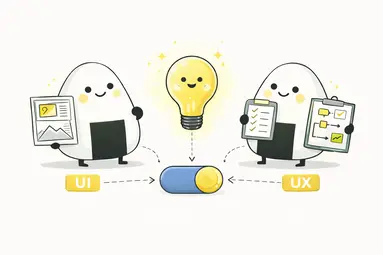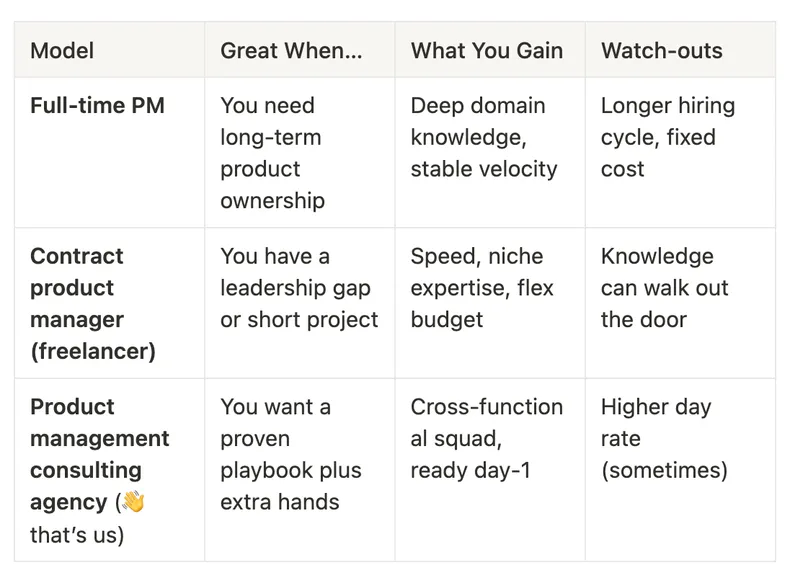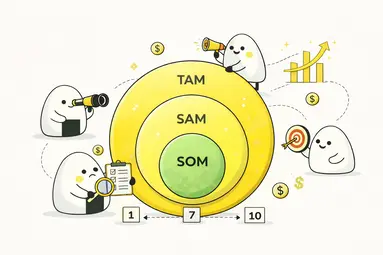
Hire a Product Manager: A Friendly Guide by Product People
Learn how to hire a product manager: full-time, contract, or interim. Get tips, interview questions, and expert insights. Find the right PM for your team.

Hiring a Product Manager: A Starter Guide
Hiring a great product manager (PM) can be the difference between shipping something your customers love… or spending months on features no one uses.
At Product People, we’ve sat on both sides of the hiring table: scaling teams for banking unicorns and plugging interim gaps at seed-stage startups. After 300+ placements, we’ve learned what works (and what quietly derails a search). This guide distills that experience so you can find the right product manager without burning cycles or cash.
Why Hiring a Product Manager Matters
Product managers are the connective tissue between customers, business goals, and tech teams. They help define the “why,” prioritize the “what,” and coordinate the “how.”
In early-stage companies, a PM often wears multiple hats: from customer research and roadmap ownership to backlog grooming and sprint planning. In larger organizations, they bring alignment, clarity, and momentum across teams that may otherwise drift apart.
Hiring the right one means fewer dropped balls, clearer communication, and better product outcomes. Hiring the wrong one? That usually means confusion, delays, and wasted resources.
But Wait… What Kind of Product Manager Do You Need?
Not every team needs the same kind of PM. There’s a huge difference between someone who thrives in zero-to-one product building and someone who excels at scaling operations or optimizing conversion funnels. Start by understanding which hiring model fits your context:

Real talk: Most of our clients start with an interim or contract product manager while searching for permanent talent. It keeps momentum and lets you test-drive the skill set.
How to Hire a Product Manager (The Right Way)
Here’s a basic flow to get you started:
1. Define what success looks like
Before you even post the job, align internally. What will the PM own? What should they accomplish in the first 3–6 months? Is this a strategic role, executional, or both?
Before you draft a job description, answer four questions:
- Which stage is the product in? (idea, MVP, growth, optimization)
- Which KPIs matter most right now? Activation? NPS? MRR?
- What decisions can the PM actually make? Budget? Roadmap? Pricing?
- How will you know they’re winning after 90 days?
Write it down. Future‑you will thank present‑you.
💡 Example: “We need a PM to improve onboarding flow and increase activation rate by 20% in 3 months. They’ll lead UX improvements, user testing, and delivery across Product and Engineering.”
2. Choose the right hiring model
Based on your goals and timeline, decide if you need someone full-time, contract-based (freelancer), or interim. Consulting agencies are helpful when speed and quality matter most.
Use your answers from Step 1 to guide your hiring type.
- If your current PM just left? Consider an interim PM to stabilize the team. If you’d like to know why hiring an Interim PM might be the perfect solution, we have the right article for you.
- If you’re exploring new markets? A consulting agency with discovery skills might be best.
- If your roadmap is long and predictable? Time to hire a full-time PM.
3. Write a job description that speaks to product folks
Avoid listing 20 different tools or buzzwords. Focus on impact, ownership, and outcomes. Great PMs are drawn to interesting problems, not laundry lists.
Highlight:
- Real problems they’ll solve
- Metrics they’ll own
- Autonomy and decision-making scope
- Culture, values, and team dynamics
4. Ask the right product manager interview questions
Use interviews to learn how they think, not just what they’ve done. A few favorites:
- “Tell me about a time you killed a feature post-launch.”
- “How do you balance technical debt with customer needs?”
- “What do you do when stakeholders pull in different directions?”
Don’t hesitate to throw in a live prioritization or tradeoff challenge. It’s often more revealing than a polished CV.
5. Don’t skip real-world tests
A short case study, product critique, or prioritization exercise is a great way to test communication and thinking. Just keep it realistic and don’t ask for free work.
Bonus tip: ask them to present their thinking. Product Managers should be able to advocate for their decisions and explain tradeoffs.
6. Onboard well, even if they’re Interim
Hiring a contract or interim PM doesn’t mean skipping onboarding. They still need context, people's intros, and clarity around goals.
Build a 30-60-90 day plan that aligns stakeholders and sets clear expectations. We’ve seen interim PMs move mountains when they’re empowered early on.
7. Learn from the experts
At Product People, we’ve talked in-depth about hiring great Product Managers. If you’d like a deeper dive, we totally recommend these talks:
- Hiring Great Product Managers: A Candidate-Centric Recruitment by Hasan Naqvi
- Hiring and Interviewing PMs by Robert Chokr from Delivery Hero
And this amazing article by Product Plan about 7 Things to Look for Hiring a Great PM.
Where to Source Great Candidates
You’ve written the job description - now what? Here are a few proven sourcing strategies:
- Product communities. Post in Mind the Product, Product Collective, or Women In Product.
- Your existing team. Ask your engineers, designers, or marketers who they’ve worked with in the past.
- Customer base. Some of the best PMs started out as super users.
- Product management consulting partners (👋 hi again) can give you plug-and-play capacity and hiring advice.
- Internal transfers. A rising engineer or customer success lead can become your next best PM with the right support.
Common Pitfalls We See
- The unicorn job description. If you're asking for someone who can code, design, write copy, own strategy, and still run standups… you’re asking for five people.
- Too many rounds. Five rounds max. Anything more creates fatigue and drop-off, especially for senior talent.
- No real authority. If your PM can’t say no or own a roadmap, they’re just a backlog babysitter.
- Ignoring contract product managers. Interim PMs can help you avoid rushed hires or burnout.
Extra Tip: Think Like a Candidate
Top product managers are evaluating you, too. They’re looking for:
- A leadership team that understands product
- Autonomy and trust
- Clarity of vision
- Respect for work-life balance
Make sure your hiring process reflects that. Fast, transparent, and respectful go a long way.
TL;DR: It’s About Fit, Not Just Skills
A brilliant PM with poor stakeholder skills can slow everything down. A great communicator with no product strategy background might struggle to prioritize.
The best product hires strike a balance between systems thinking, customer obsession, and executional chops.
And most importantly, the “right” product manager depends entirely on your product stage, org size, and business goals. There’s no one-size-fits-all, and that’s where a thoughtful, intentional hiring process makes all the difference.
📣 Need help hiring a contract product manager or an interim team?
That’s exactly what we do. Get in touch, we’d love to help.
FAQ
Read More Posts

Unlocking the Synergy of UI and UX Design for Product Success

Master the Market: A Guide to TAM SAM SOM for Product Leaders
.webp)
The Comprehensive Guide to How NPS is Calculated for Product Growth
.webp)
Understanding DAU Meaning: A Guide to Tracking Daily Active Users
.webp)
Data Security: Essential Guide to Protection and Privacy
.webp)


